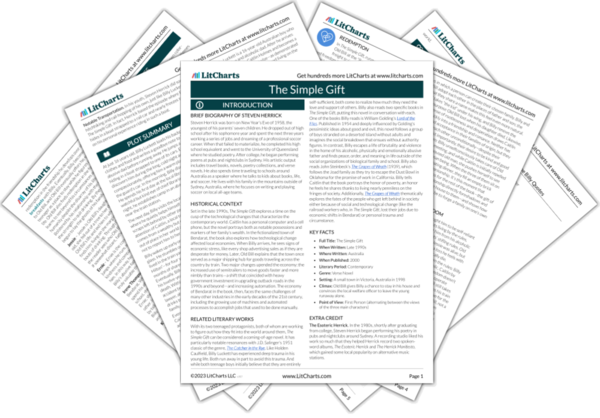The business card continues to humanize Billy to Caitlin by showing her that he has a sense of humor—both in general, and about his current situation as an unhoused runaway teenager. He also uses it to formalize his developing relationship with Caitlin under the heading of friendship; this represents an important step in his (and her) journey to finding acceptance and intimacy by creating a chosen family with each other. Earlier, Billy tried to assure readers—and maybe himself—that he isn’t proud. But just as he can see into Caitlin’s character, she can see into his. And she recognizes that he
is in fact proud of his ability to survive and create a life and a set of meaningful relationships for himself on his own terms.
